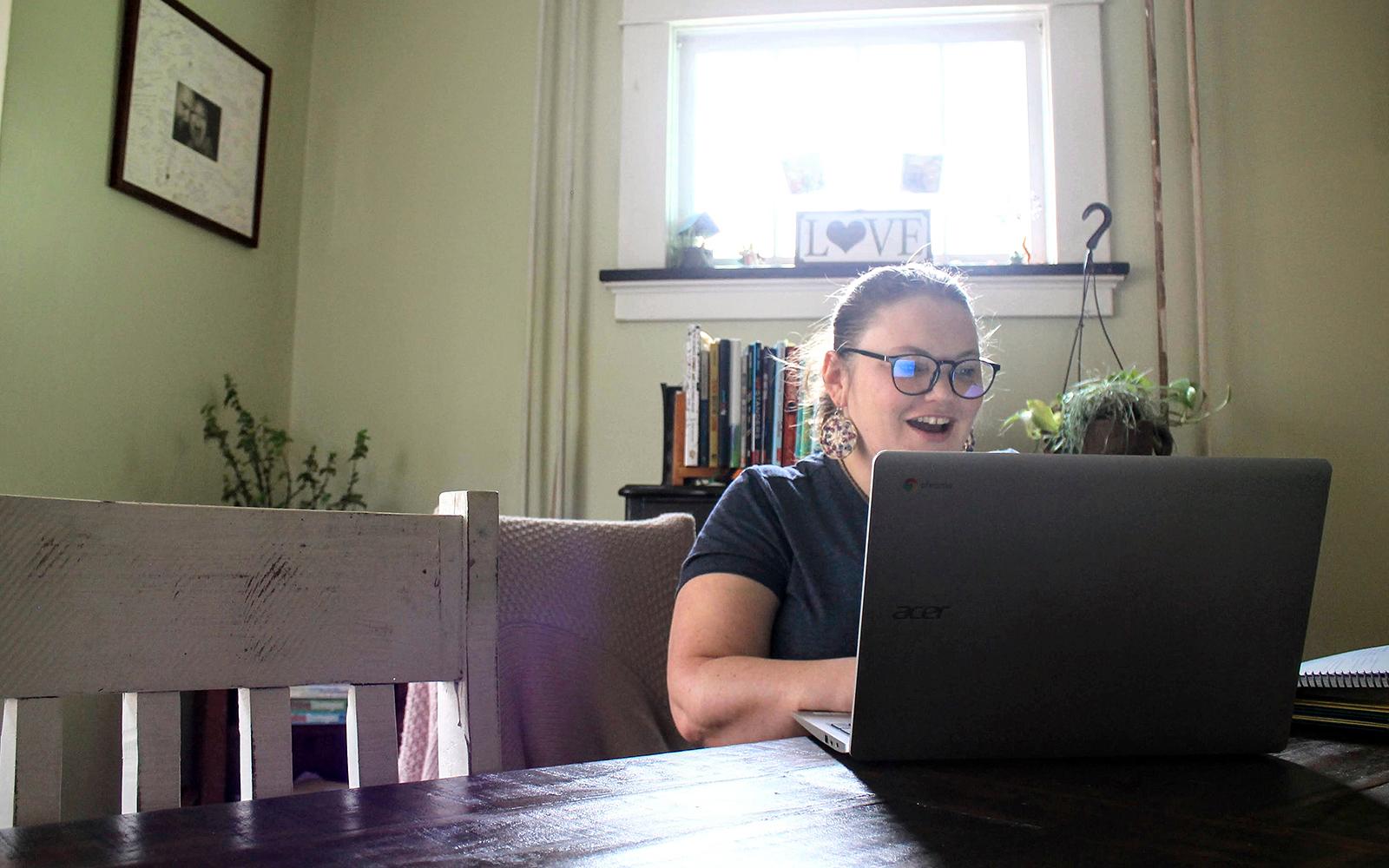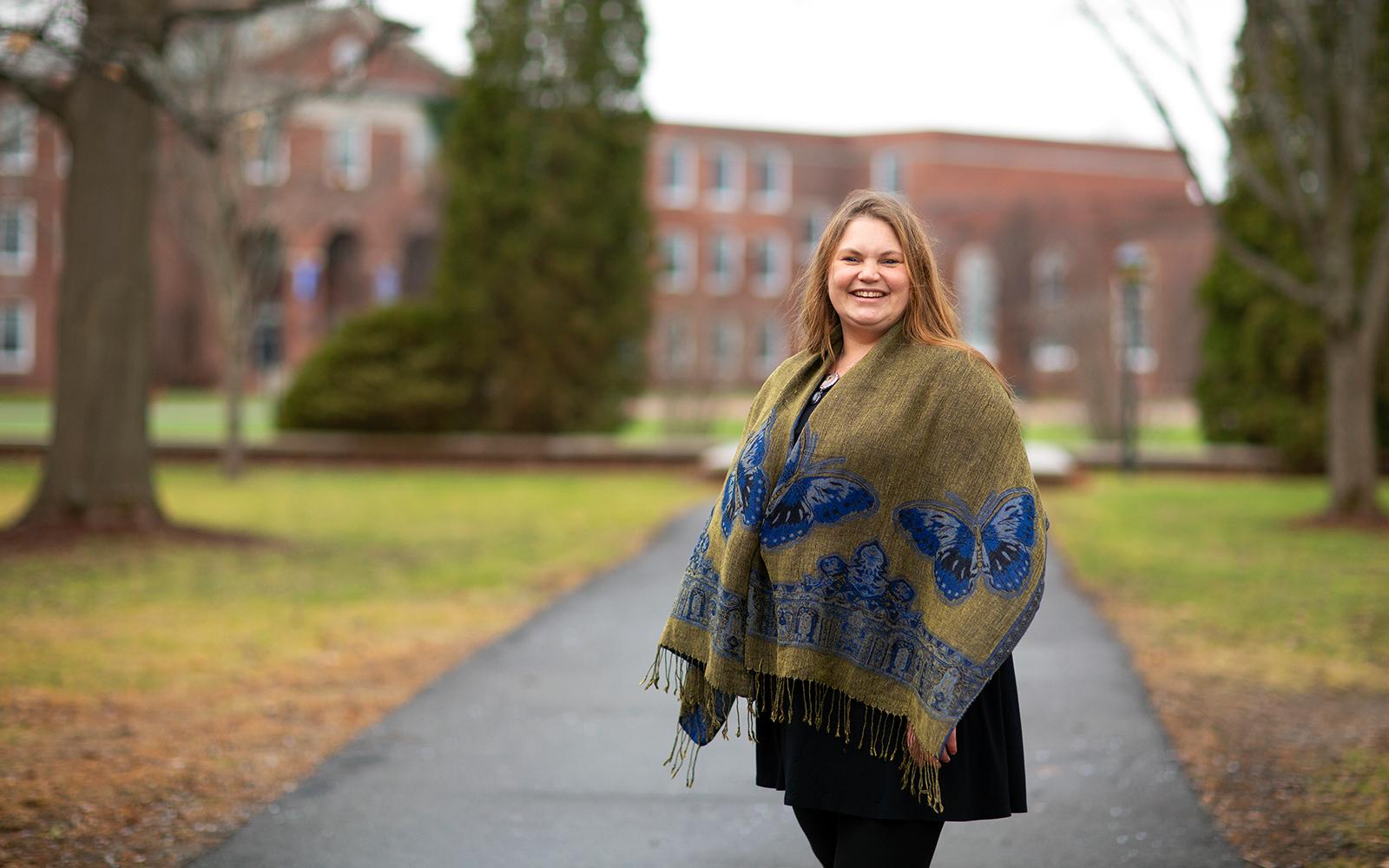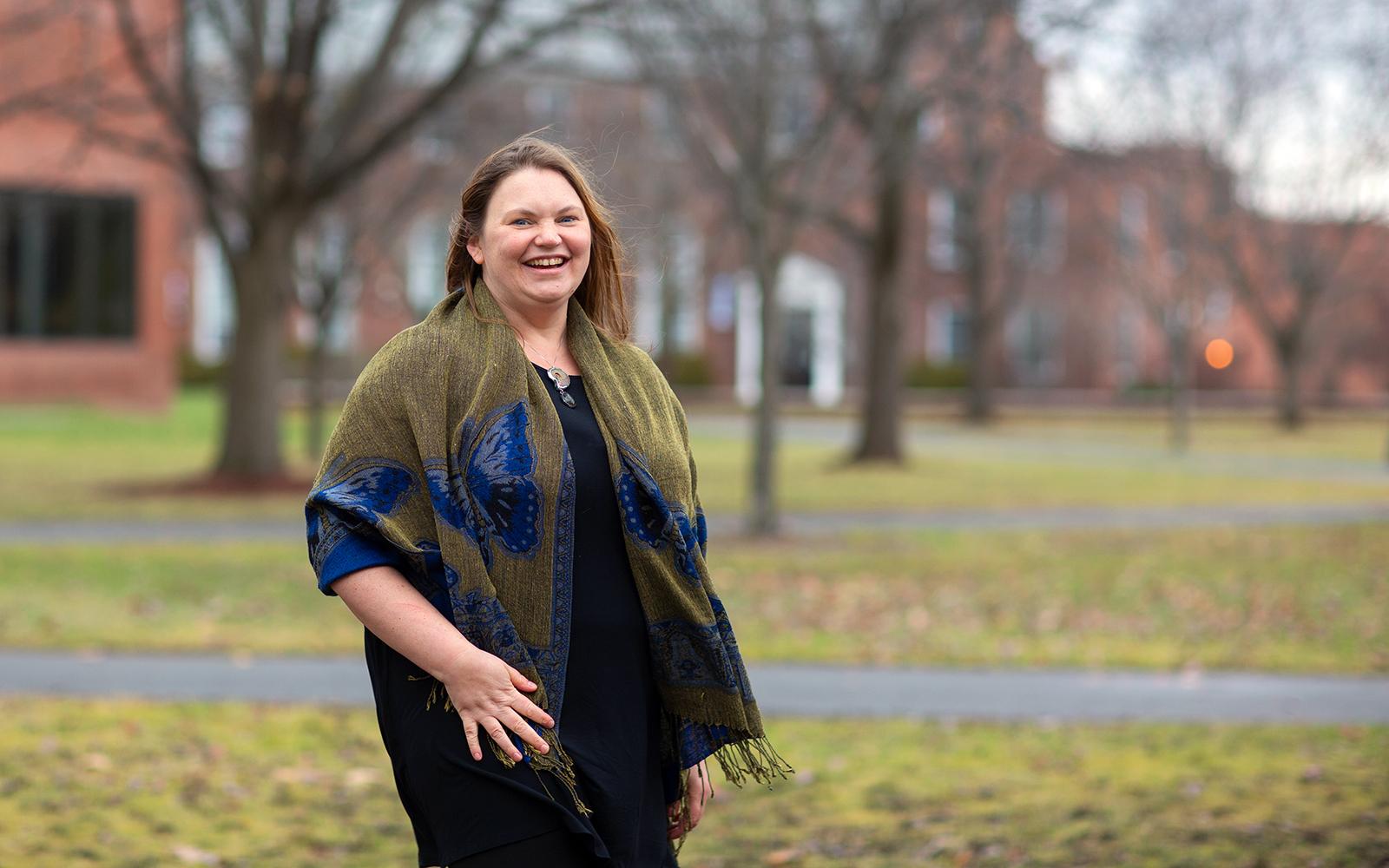North Country Teacher Gives Tools to Weather Emotional Storm of Pandemic
North Country English teacher Jennifer Hutchins ’01 knew mindfulness training would help calm and focus her middle school students—because it had helped her ride some of the most difficult emotional waters of her life.
Any Salmon River School District student who feels isolation or unnamed anxiety can connect virtually with a person who will help them find the same tools for coping that got Hutchins through dark times. The practice of finding inner means to properly frame a baffling world has gained attention nationally as legions of students report on the weight of depression, anxiety and hopelessness that accompanies the COVID-19 pandemic. Hutchins, an eighth-grade teacher, is on the local edge of this gathering movement.

Hutchins works remotely during the pandemic.
“With COVID, we need mindfulness more than ever,” she said. “In general, there has been a shift in the education field to an understanding that there needs to be work done in the social and emotional area in order to bring students into their academic potential.”
An alumna of SUNY Potsdam’s teacher education program, Hutchins spent the last half dozen years organizing resources, explaining concepts of mindfulness to people who weren’t sure what it meant, and spearheading an initiative that has now trained 15 participants to work in this district near the Canadian border. A similar effort is just beginning in the nearby Massena Central School District. Hutchins considers it a fortunate coincidence of timing that the wave of COVID-19 broke just as her initiative spread its wings.
“It’s about releasing tension,” Hutchins said. “In order to reach students academically in any setting, they have to be physically and emotionally present.”

Students receive guidance through a chosen experience that may help heal them emotionally, often through focus on breathing, movement techniques and awareness of emotions in a non-judgmental context. Mindfulness practices for better sleep are always in high demand and involve building an awareness of what the body is experiencing, Hutchins said. Active listening by the mindfulness leader also plays a significant role, but the practice does not involve advice, counseling or yoga, and is not spiritual or religious in nature, Hutchins said.
Hutchins first discovered mindfulness while navigating the waters of a personally tumultuous and anxious time. The tools she gained to face panic and an uncertain future sold her on the benefits of a practice she says has a strong scientific basis.

“We want to be guided by science,” she said. “This is what a mindfulness room looks like: Instead of reacting and getting sent to the office, students can catch themselves and go to the mindful moment room, where a leader listens, then gives them a tool they can use. There are many tools for different things, including heartfulness and forgiveness. The student picks the tool, and the leader guides them through its use.”
As the program grew “in pockets,” Hutchins began mindfulness training with the girls hockey team, honing focus and resilience. This year, her work is funded by a grant from the American Federation of Teachers. Six practitioners are employed at the district through a partnership with the Holistic Life Foundation, and that number is on course to expand to 10 next year.
Reese Jacobs is a community member who was trained in mindfulness practice by HLF and is working in the schools. The goal is to help adolescents resolve trauma and distress early, before it compounds into larger problems down the road, Jacobs said.
“Mindfulness can help them to focus inward on how they themselves can deal with their own thoughts and emotions,” Jacobs said. “The structure of our programming is devised in an efficient way to bring the youth through a cycle of practices that allow them to think proactively through a guided manner, in ways that they can be their own scientist. Some of the practices help even in a reactive way to calm down or alleviate stressors that they often endure in the school/life balance.”
Experts in the mental health field say practices like mindfulness could be vital to helping millions cope with a pandemic that has left emotions shattered.
“Being in the present moment is more important now than ever. People are afraid and worried,” said Holistic Life Foundation co-founder Ali Smith, who helped Hutchins bring the initiative to the North Country. “Students, teachers, and administrators are dealing with lots of stress around COVID-19; many are dealing with trauma in the home as well. After the initial shock—where everything was essentially put on hold—schools’ demand for mindfulness practices for students and teachers has grown a lot.”
Article by Bret Yager
